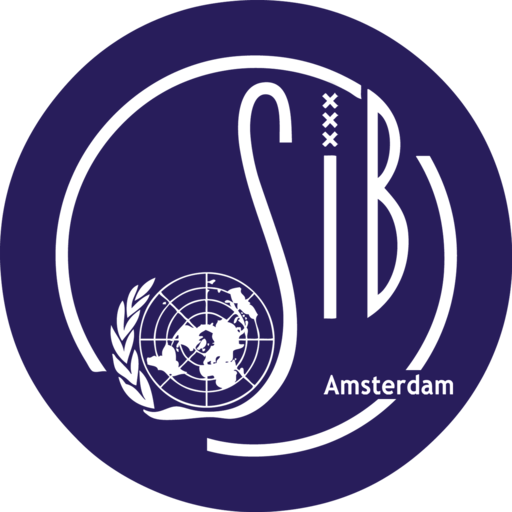Excursion to the OPCW
On January 15th SIB-Amsterdam went to the Organisation for the Prohibition of Chemical Weapons (OPCW) in The Hague. The OPCW is the implementing body of the Chemical Weapons Convention (CWC or Convention), which entered into force on 29 April 1997. Currently the OPCW has a total of 193 member states and one member state (the United States of America) that is currently in the process of destroying their owned amount of chemical weapons. Under the nation states that did not sign the convention are North-Korea, Israel, Egypt and South-Sudan.SIB-Amsterdam’s excursion to the OPCW started around 9.00 for most participants, who took a shared train from Amsterdam to The Hague, while others traveled separately and joined the group later. The visit started off at 11.00 with a quick tour through some of the halls and rooms of the building, during which the Nobel Peace Price (2013) was admired. Many participants took the opportunity to take a picture. After the tour the group was brought to a separate room and after a short informative video, a representative for the Political Affairs of the OPCW gave us some insight into the structure and way of operating of the organisation. After this introduction there was an opportunity to ask questions. The topics of the questions varied from topics as excluded nation states and the likelihood of them signing the CWC, to the judicial capabilities and the possibility for repercussions in the case of chemical weapons being used in any of the member states. Among the topics discussed were also different attacks in which chemical weapons have been used, such as in the Syrian Arab Republic and The United Kingdom. During this, the element of fear and the difference between chemical weapons and military weapons was also pointed out. The group gained some understanding about the difficulties of having a comprehensive insight into and control over the amount of chemical weapons that are stored, as nation states themselves are responsible for reporting the amount of chemical weapons owned and due to the fact that member states do not necessarily have insight into the amount of chemical weapons that non-state actors (such as terrorist groups) hold. Interesting to hear was also that the OPCW does not have the competence to do an independent investigation about the amount of chemical weapons being stored in a specific nation state until chemical weapons have in fact been used, after which a ‘’fact checking mission’’ will be initiated. The conversation was an interesting opportunity to learn more about the actual way of operating of an international institution as the OPCW and it’s admirable effect on the minimal use of chemical weapons worldwide.After the visit the group enjoined some drinks in a café downtown, during which the consequences of the learned information was discussed. SIB-Amsterdam is grateful to the OPCW for its time and hospitality in receiving us and the organisation’s contribution in minimizing the use of chemical weapons worldwide.

